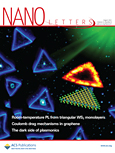 We’ve come across some odd examples of plagiarism in this job, from the fellow who tried to build a CV on the back of another researcher’s work, to the education researcher who, from what we can tell, preferred lifting the work of others to writing her own papers. Here’s another odd one for the pile.
We’ve come across some odd examples of plagiarism in this job, from the fellow who tried to build a CV on the back of another researcher’s work, to the education researcher who, from what we can tell, preferred lifting the work of others to writing her own papers. Here’s another odd one for the pile.
A group of Iranian scholars has lost a paper in Brain Injury because they lifted it wholesale from a previously published article. What’s harder to get one’s mind around, however, is that the two papers were looking at culturally-specific aspects of brain injury. Except that one wasn’t.
The retracted paper, “Frontal acquired brain injury, substance abuse and their common psychological symptoms in the Iranian population,” appeared in 2011. Here’s the abstract, which is still available on the journal’s website (we’ll note that although the abstract is free for all, the retraction notice was behind a pay wall — an error, according to the publisher, which they remedied when we contacted them): Continue reading The brains in Spain fall mainly on…Iran?
 A chemistry paper on nanorods that became a lightning rod for criticism on chemistry blogs this week has been retracted.
A chemistry paper on nanorods that became a lightning rod for criticism on chemistry blogs this week has been retracted.







